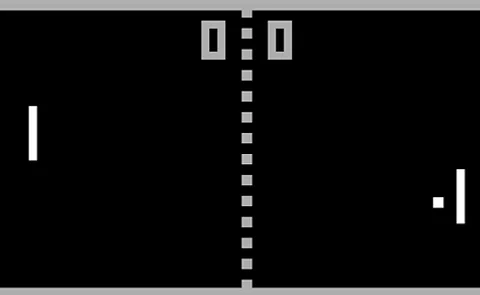The Digital Era and how it's changed the way we don't think about things
The worldwide web emerged in 1990, followed by the proliferation of email in the late nineties. Then came broadband, cellular networks, smartphones, social media, gaming and a myriad of apps. Facebook and YouTube are less than half a generation old. WhatsApp, Pinterest, Instagram, Snapchat and WeChat are even more recent.
The behavioural manifestations of these changes are obvious. Young or old alike, we become anxious if deprived of our mobile devices and feel isolated if poor internet connectivity prohibits real-time messaging. How often have you seen young couples seated opposite each other in a restaurant, gazing into their digital devices rather than into the eyes of each other? What are the likely sociological consequences of preferential intimacy with our digital devices, rather than with each other?
Video games began to emerge prior to the digital era (e.g. Atari 'Pong' in 1972), but who could have imagined that in just over a generation, humanity would be frittering so much time on gaming?

The evolution of online shopping in less than a generation has meant that High Street shops and out-of-town malls are probably doomed, unless outlets transition from purely functional and transactional to experiential. Whilst some might wish to chastise Starbucks for the price and quality of its coffee, the proliferation of Starbucks outlets worldwide is testimony to the attraction of the 'Starbucks experience'. Indeed, Starbucks should perhaps be credited for providing a much-needed beacon of hope to many otherwise flagging High Streets.
The digital era has also transformed how information is obtained and consumed. Thirty years ago, we relied upon radio, TV, newspapers, and magazines for information and entertainment. When more in-depth information was required, we used reference books, journals and libraries. Today, unlimited information is accessible instantaneously. Beyond this, there's also the vast amounts of ambient information, foisted upon us via our digital devices, whether we want it or not and whether we like it or not. Of course, there's always the 'off' button, but somehow the thought of missing-out compels us to remain logged-in and listening for alerts.
It's difficult to estimate just how much additional information human beings routinely assimilate today versus a generation ago, but the increase is likely to be vast. Looking back three or four generations, the increase is unimaginable. Yet 100 years or so, represents a miniscule passage of time in terms of human evolution. This poses the question as to how the human mind could possibly have adapted to such a rapid rise in information in such a short period of time.
The answer is simple.
There was no need to adapt because the facility to deal with information overload evolved very early in the development of the human brain.
Imagine yourself arriving home one evening, having left your place of work at the normal time, having driven the usual route home, having experienced typical traffic conditions and having arrived at your destination at the expected time. Nothing extraordinary happened. But, as you step from your car, you realise that you can't recall much of the journey. You have no recollection of stopping at the traffic lights, you can't remember passing the local school and you have no memory whatsoever of turning into the street where you live, but you do recall braking sharply to avoid a wobbling cyclist. Presumably, you drove home safely and considerately, but somehow the detail eludes you.
This is an everyday manifestation of how the human mind processes information. During the journey home, one aspect of your mental processing capacity -Type 1 mental processing - dealt non-consciously with a large proportion of the incoming sensory information, directing you to change gear, brake, steer, glance in your mirrors and otherwise control your vehicle as circumstances dictated, without requiring conscious intervention on your part. However, another aspect of your mind - Type 2 mental processing- was always on the alert, ready when called upon to intervene and interpret inputs that signal something unexpected or unusual. That's probably why you remembered the wobbling cyclist but little else of the journey. It seems that evolution has created a very efficient, dual processing strategy for handling massive quantities of incoming information.
Involvement of working memory is a defining characteristic of Type 2 mental processing. When incoming sensory information triggers Type 2 processing, relevant knowledge is extracted from the long-term memory and transferred into the working memory, where it brings meaning to the incoming inputs. This is known as cognitive decoupling. We experience this as thinking consciously and we knowingly and deliberately make decisions about how to react. However, working memory has finite capacity and requires time to process information, so Type 2 mental processing is relatively slow and the volume of information that can be processed at any moment in time is limited. In contrast, Type 1 doesn't involve working memory. Consequently, information processing is very rapid and throughput capacity is vast, if not infinite. Moreover, Type 1 processing is autonomic, meaning it happens without needing to think about it. All that's experienced is the urge or inclination to react in a particular way, without knowing why or even realising that you're doing so.
Type 1 and Type 2 mental processing affect our behaviour simultaneously, so what we do in response to incoming information occurs because of both processes influencing us concurrently. For example, your awareness of the wobbling cyclist on the drive home and your realisation that you needed to react, was thoughtful (Type 2) yet what you did in terms of braking, steering, gear shifts, etc., was autonomic, requiring no thought whatsoever (Type 1). You just did it! If not for Type 1 processing, your reactions would probably have been too slow. Without Type 2 intervention, you might not have realised the danger. Either way, you'd probably have collided with the cyclist.
Type 1 processing is autonomic, meaning it happens without needing to think about it. All that's experienced is the urge or inclination to react in a particular way, without knowing why or even realising that you're doing so.
Whilst evolution may have provided us with the facility to process ever-increasing volumes of incoming information, 30 years is an insufficient passage of time to evolve increased working memory capacity or faster Type 2 processing.
This is because evolution works by natural selection of beneficial mutations over successive generations. Although it's possible that practice could have sharpened our thinking, the magnitude of the increase in incoming information means that most of the increase in volume must inevitably be diverted to Type 1 mental processing.

The consequences of this shift to Type 1 mental processing, which we call 'Type 1 shift', is likely to become increasingly evident across successive generations whose urges, inclinations and behaviours will be influenced more and more by non-conscious mental processing. Perhaps this explains, at least in part, some of the changes in attitudes, preferences and behaviours of Generations X, Y and Z versus the Baby Boomers, who reached adulthood prior to the digital era. Manifestations of these changes are already evident and well documented in terms of the attitudes and expectations of university entrants and of young people in the workplace.
Perhaps it also explains the shift away from the functional to the experiential in terms of product and brand choices and in shopping behaviour. However, of even greater significance to society at large, will be the socio-political changes engendered by 'Type 1 shift'. Could this be the root cause of the seismic political changes that are already evident in the USA, the UK, Germany, Italy and most recently, on the streets of Paris? Is this what's fuelling increasing discontent with the regimes in Hong Kong and even in Singapore? The People's Republic of China is probably the most 'digitised' country on Earth. Consequently, even Xi Jinping may struggle to contain the consequences of 'Type 1 shift'. Bill Gates, Steve Jobs, Mark Zuckerberg and their like, may be heralded as champions of the digital age but what have they actually unleashed upon the World? Watch this space!
'Type 1 shift' is also fuelling the transition from the functional and transactional to the experiential. This transition creates fantastic opportunities for new and smaller challenger brands to deliver something truly engaging to people seeking particular emotional outcomes, even if they don't know what these outcomes are or realise that they want them. These new brands will probably be relatively small and very focused, but they'll deliver good returns on investment to brand owners by extracting a premium price from those of Generations X, Y and Z who really want and value them, funded of course by the higher salaries they think they deserve! This doesn't necessarily herald the demise of the big brand. Quite the opposite, in fact, provided that correspondingly big budgets are set aside and directed effectively into developing an integrated, holistic sensory and emotional experience across product, branding, packaging and the various media channels used to deliver the brand experience. Never before has branding been so important in delivering experiences and never before have the sensory characteristics of product and pack been so important in underpinning and reinforcing delivery of the brand experience.
Some time ago, prophets of doom (and those with a vested interest) predicted the demise of research by direct questioning, because it inevitably invokes Type 2 mental processing. Relying on Type 1 research methods alone, or System 1 as it's incorrectly described, was apparently the antidote to the appalling failure rates that have bedevilled NPD for the last two generations, or so they proclaimed, heralding a new but false dawn in successful brand and product development. Where are all these dead-certain successes? Whilst you're pondering this question, remember the drive home from work and the wobbling cyclist. With either Type 1 or Type 2 mental processing alone, the cyclist would probably have died - just like most new products! The world of NPD needs research methods that embrace both types of mental processing because that's how the human mind processes incoming information. Whilst the time is certainly ripe to cast out naïve direct questioning from the temple of research, it's equally important to bar the door to those who advocate solely System 1.
Simple research methods that ask questions of people that they can answer realistically, without confabulation, combined with smart artificial intelligence models based on sound scientific theory and robust empirical data, that use the answers to these questions as inputs to predict the emotional outcomes that people unknowingly seek from brands, heralds a genuine new dawn for NPD.
Footnote: Daniel Kahneman introduced the lay world to System 1 and System 2 metal processing in his best-selling book, 'Thinking, Fast and Slow', although it was Keith Stanovich of the University of Toronto who first described the Dual Process Theory of which Systems 1 & 2 form an integral part. It's now recognised that System 2 comprises an array of mental processing systems characterised by two common traits; cognitive decoupling and the involvement of working memory. Likewise, System 1 comprises an array of mental processing systems characterised by their autonomy and otherwise not involving cognitive decoupling and working memory (known as TASS – The autonomic set of systems). For this reason, Type 1 and Type 2 mental processing is now the preferred nomenclature, rather than Systems 1 and 2, respectively, which are obsolete.


























